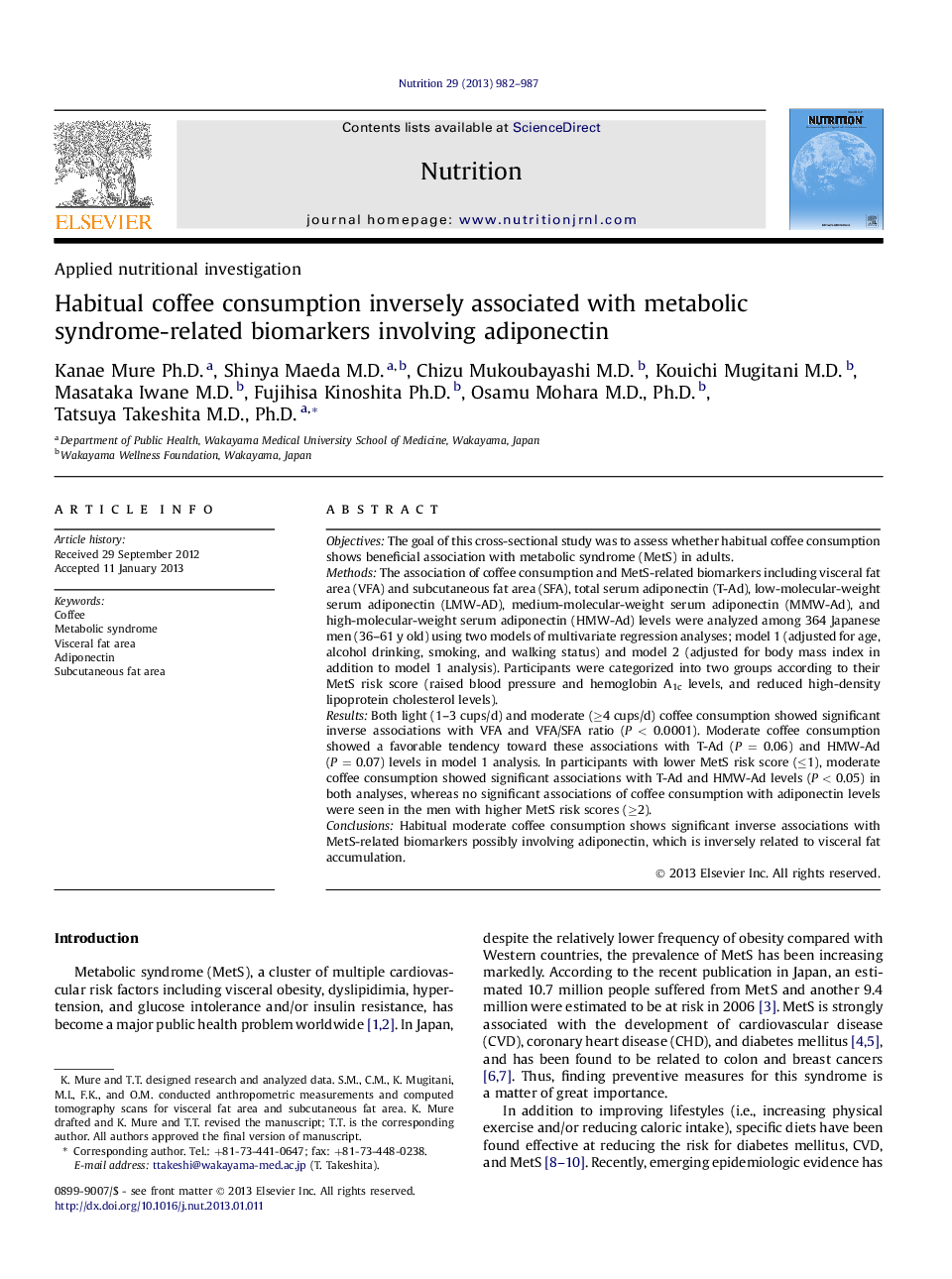| Article ID | Journal | Published Year | Pages | File Type |
|---|---|---|---|---|
| 6089813 | Nutrition | 2013 | 6 Pages |
ObjectivesThe goal of this cross-sectional study was to assess whether habitual coffee consumption shows beneficial association with metabolic syndrome (MetS) in adults.MethodsThe association of coffee consumption and MetS-related biomarkers including visceral fat area (VFA) and subcutaneous fat area (SFA), total serum adiponectin (T-Ad), low-molecular-weight serum adiponectin (LMW-AD), medium-molecular-weight serum adiponectin (MMW-Ad), and high-molecular-weight serum adiponectin (HMW-Ad) levels were analyzed among 364 Japanese men (36-61 y old) using two models of multivariate regression analyses; model 1 (adjusted for age, alcohol drinking, smoking, and walking status) and model 2 (adjusted for body mass index in addition to model 1 analysis). Participants were categorized into two groups according to their MetS risk score (raised blood pressure and hemoglobin A1c levels, and reduced high-density lipoprotein cholesterol levels).ResultsBoth light (1-3 cups/d) and moderate (â¥4 cups/d) coffee consumption showed significant inverse associations with VFA and VFA/SFA ratio (P < 0.0001). Moderate coffee consumption showed a favorable tendency toward these associations with T-Ad (P = 0.06) and HMW-Ad (P = 0.07) levels in model 1 analysis. In participants with lower MetS risk score (â¤1), moderate coffee consumption showed significant associations with T-Ad and HMW-Ad levels (P < 0.05) in both analyses, whereas no significant associations of coffee consumption with adiponectin levels were seen in the men with higher MetS risk scores (â¥2).ConclusionsHabitual moderate coffee consumption shows significant inverse associations with MetS-related biomarkers possibly involving adiponectin, which is inversely related to visceral fat accumulation.
